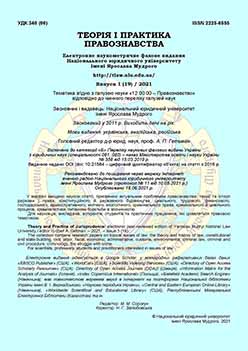Порівняльний аналіз конституційного статусу корінних народів Бразилії, Канади та Індії
Comparative analysis of the constitutional status of indigenous peoples of Brazil, Сanada and Іndia
Author(s): О. V. ZinchenkoSubject(s): Law, Constitution, Jurisprudence, Constitutional Law, International Law
Published by: Національний юридичний університет імені Ярослава Мудрого
Keywords: Brazil; India; Canada; Indians; indigenous peoples; tribes; castes;
Summary/Abstract: There are now more than 5,000 ethnic and 2,500 language groups in the world, while there are virtually no monoethnic states left. Almost all states have interethnic problems, which determines the severity of the problem and its relevance. The relevance of the topic is: 1) to gain experience of Brazil, Canada, India in solving the problem of the constitutional status of indigenous peoples; 2) in emphasizing the need to provide them not only with language rights, but also with an appropriate level of well-being; 3) in the ability to help stabilize the domestic political situation in Ukraine and strengthen relations with neighboring countries and the European Union.The purpose of the article – an attempt to conduct a comparative analysis of the constitutional status of the indigenous peoples of Brazil, Canada and India on the basis of studying the relevant provisions of the Constitutions, special international documents, scientific papers. The Conventions of the United Nations and the International Labor Organization of 1957, 1982, 1989«On protection and integration of indigenous and other peoples leading tribal and semi-tribal lifestyles in independent countries», «On indigenous peoples and peoples leading tribal way of life in independent countries» were considered and analyzed. An analysis of the Constitutions and Constitutional Acts of Brazil, Canada and India, which reflect the reaction of these states to these Conventions, was also conducted. There are similar and distinctive features in the formation of the constitutional status of the studied ethnic groups. Similar features: centuries-old cruel treatment of the colonizers, the corresponding influence of international documents on the design of the constitutional status, the introduction of their requirements into the constitutions. Distinctive features: different attitude of the colonizers to the aborigines – expulsion and destruction in Brazil,enslavement, forced assimilation in Canada, the fight against tribes living in the mountains, forests and theft, robbery in India; different deadlines for the adoption of acts protecting the rights of indigenous backgammon.
Journal: Теорія і практика правознавства
- Issue Year: 1/2021
- Issue No: 19
- Page Range: 1-14
- Page Count: 14
- Language: Ukrainian

